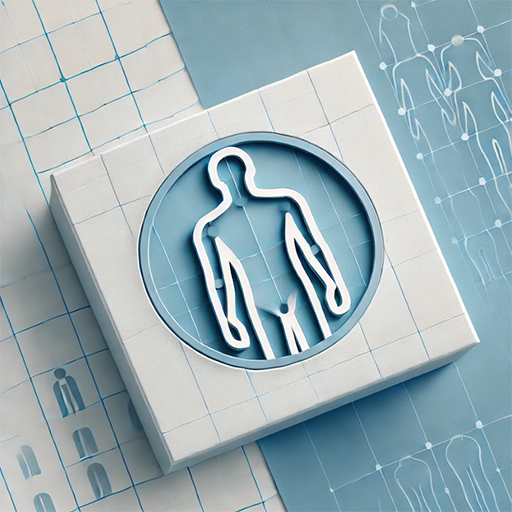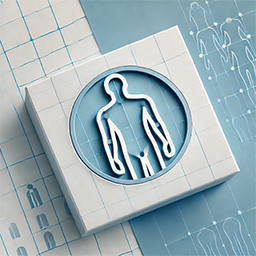Losing weight isn’t just about fitting into your favorite jeans or turning heads at a party. It’s an important way to improve your health and feel better every day. Shedding extra pounds can help lower your risk of serious diseases like heart disease and diabetes. It can also give you more energy and help you feel more confident. The benefits of losing weight go far beyond what you see on the scale—they can lead to a healthier and happier life.
In this blog post, we’ll look at the science-backed health benefits of losing weight, with tips from experts to guide you. You’ll find out why reaching and keeping a healthy weight matters and how it can make a big difference for both your body and your mind. From feeling more energetic to reducing health risks, the reasons to lose weight are clear. Curious about how shedding those extra pounds can change your life? Let’s dive in!
Why Losing Weight Matters: The Big Picture
Carrying extra weight can impact nearly every part of your body. It adds pressure to your heart, joints, and internal organs, making them work harder than they should. Over time, this strain can raise your risk of serious health problems like type 2 diabetes, heart disease, high blood pressure, and even certain types of cancer. Keeping a healthy weight helps protect your body and lowers the chances of developing these chronic conditions.
According to the Centers for Disease Control and Prevention (CDC), losing even a small amount of weight—just 5 to 10% of your total body weight—can lead to big health benefits. For example, if you weigh 200 pounds, dropping just 10 to 20 pounds can improve your blood pressure, lower your cholesterol, and reduce your risk of type 2 diabetes. These changes may seem small, but they can have a lasting, positive effect on your overall health.

Top Health Benefits of Losing Weight
1. Reduced Risk of Heart Disease
Heart disease is the number one cause of death around the world. Carrying extra weight can raise your risk by increasing blood pressure, boosting bad cholesterol levels, and causing more inflammation in the body. These are all major risk factors that can lead to serious heart problems, including heart attacks and strokes. Losing weight can help protect your heart and improve your overall health.
Losing weight can help:
- Lower your blood pressure
- Reduce LDL (“bad”) cholesterol
- Improve blood sugar control
These changes can lower your risk of heart attacks and strokes. The American Heart Association states that weight loss supports better heart health by easing the strain on your heart and blood vessels. Even a small amount of weight loss can make a big difference for your cardiovascular system.t loss improves heart health by lowering strain on the cardiovascular system.
2. Better Blood Sugar Control and Lower Risk of Type 2 Diabetes
Being overweight is a major risk factor for developing type 2 diabetes. Carrying too much fat—especially around your belly—can make your body less sensitive to insulin. Insulin is the hormone that helps control your blood sugar levels. When your body doesn’t respond to insulin properly, blood sugar builds up, which can lead to type 2 diabetes. Losing weight can help your body use insulin more effectively and lower your risk.
Losing weight helps your body respond to insulin more effectively and lowers your blood sugar levels. This is especially important for people at high risk of type 2 diabetes. Research shows that losing just 5 to 7% of your body weight can prevent or delay the start of type 2 diabetes. For example, if you weigh 200 pounds, losing just 10 to 14 pounds can make a real difference in your health and reduce your risk.
3. Joint Pain Relief and Improved Mobility
Carrying extra weight puts added stress on your joints, especially in your knees, hips, and lower back. Over time, this pressure can cause pain, swelling, and stiffness. It can also make simple tasks—like walking, climbing stairs, or bending over—more difficult. Losing weight helps reduce the strain on your joints and can ease discomfort, making it easier to move and stay active.
Losing weight can:
- Reduce joint pain and swelling
- Improve your mobility and flexibility
- Lower the chance of getting osteoarthritis
Even losing a small amount of weight can take pressure off your joints. This can help you move more easily and feel more comfortable during everyday activities. Keeping a healthy weight supports better joint health and overall movement. loss can ease the burden on your joints and improve your overall movement.
4. Enhanced Sleep Quality
Carrying extra weight raises the risk of sleep apnea, a condition where your breathing stops for short periods while you sleep. Sleep apnea can lead to tiredness during the day, headaches, and trouble focusing. Losing weight can help reduce these risks and improve the quality of your sleep.
Losing weight can help reduce or even stop sleep apnea symptoms. This can lead to:
- Better rest and more energy during the day
- Less snoring that disturbs your sleep or others
- Improved overall sleep quality and feeling more refreshed
By shedding extra pounds, you can enjoy deeper, healthier sleep and wake up feeling more alert.
5. Boosted Energy and Mood
Weight loss is often connected to having more energy and better mental health. Carrying extra weight can make you feel tired and slow, but losing pounds can bring many positive changes, such as:
- Increased stamina and physical endurance
- A better mood and fewer signs of depression and anxiety
- Higher self-esteem and greater confidence
Plus, exercise—which usually goes hand in hand with weight loss—releases endorphins. These “feel-good” hormones help boost your mood and overall sense of well-being.

How to Lose Weight Healthily: Tips That Work
Losing weight safely involves a mix of healthy eating, regular exercise, and positive lifestyle changes. It’s important to make lasting habits that support your health. Here are some tips backed by experts to help you get started:
Balanced Nutrition
- Eat plenty of fresh fruits and vegetables every day
- Choose whole grains instead of refined carbohydrates
- Include lean proteins such as chicken, fish, beans, and nuts in your meals
- Limit sugary drinks and avoid processed foods as much as possible
Eating a balanced diet like this supports weight loss and overall health.
Regular Exercise
- Aim for at least 150 minutes of moderate aerobic activity each week, such as brisk walking or cycling
- Add strength training exercises 2 to 3 times a week to build and maintain muscle
- Choose activities you enjoy to help stay motivated and make exercise a regular habit
Staying active is key to losing weight and improving your overall health.
Lifestyle Changes
- Aim for 7 to 9 hours of good-quality sleep each night to help your body recover
- Manage stress with activities like meditation, yoga, or hobbies you enjoy
- Drink plenty of water throughout the day and try to limit how much alcohol you drink
For more detailed tips and expert advice, check out the Mayo Clinic’s guide to healthy weight loss.gies, check out the Mayo Clinic’s guide to healthy weight loss.
Common Myths About Weight Loss
Myth 1: You Have to Starve Yourself to Lose Weight
False! Skipping meals or drastically cutting calories can backfire, causing muscle loss and a slower metabolism. Focus on nutrient-rich foods that satisfy hunger and nourish your body.
Myth 2: Carbs Are Bad
Not all carbs are created equal. Whole grains, fruits, and vegetables provide essential nutrients and fiber. The key is to avoid refined carbs and sugars.
Myth 3: You Can Spot-Reduce Fat
Fat loss happens throughout the body, not just in one area. Combining healthy eating with overall exercise helps reduce body fat evenly.

Why Long-Term Weight Management Matters
Losing weight is a great first step, but keeping it off is just as important for your health. Building healthy habits that you can stick with over time helps you enjoy lasting results. This approach also prevents the frustrating cycle of losing weight quickly and then gaining it back, known as yo-yo dieting. Staying consistent with good choices leads to better health for life.
Try to:
- Set realistic and gradual goals that are easy to reach
- Track your progress regularly and celebrate your milestones along the way
- Get support from friends, family, or health professionals to stay motivated
These steps can help you stay on track and make your weight loss journey more successful.
Ready to Experience the Health Benefits of Losing Weight?
Losing weight brings many benefits that can improve your heart health, reduce joint pain, boost your mood, and raise your overall quality of life. The great news is that even small changes can make a big difference over time. Start today by picking one healthy habit to add to your daily routine, and watch how it helps you feel better and stronger.
Take action now and commit to your health journey by setting a simple, achievable goal. It could be walking for 10 minutes each day, swapping sugary soda for water, or adding one extra vegetable to your meals. Remember, every small step you take brings you closer to better health and lasting results. Start today—your body will thank you!



